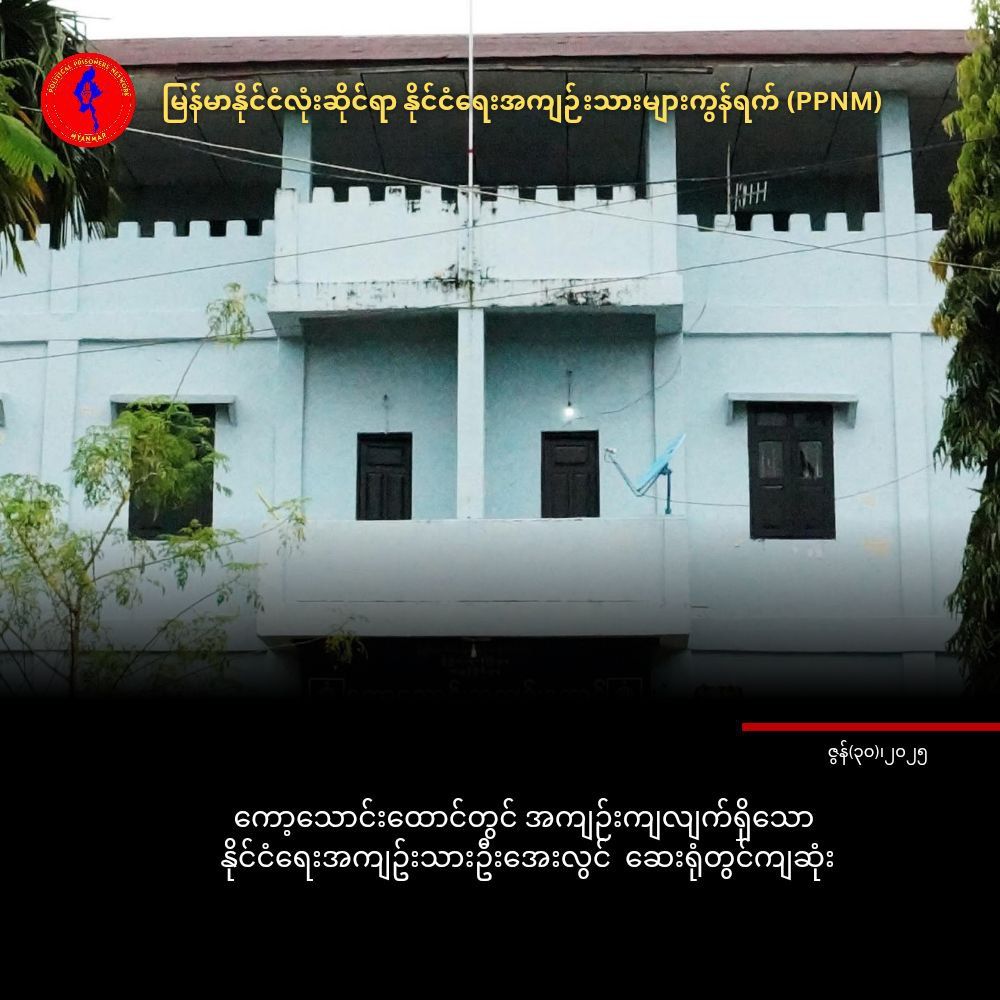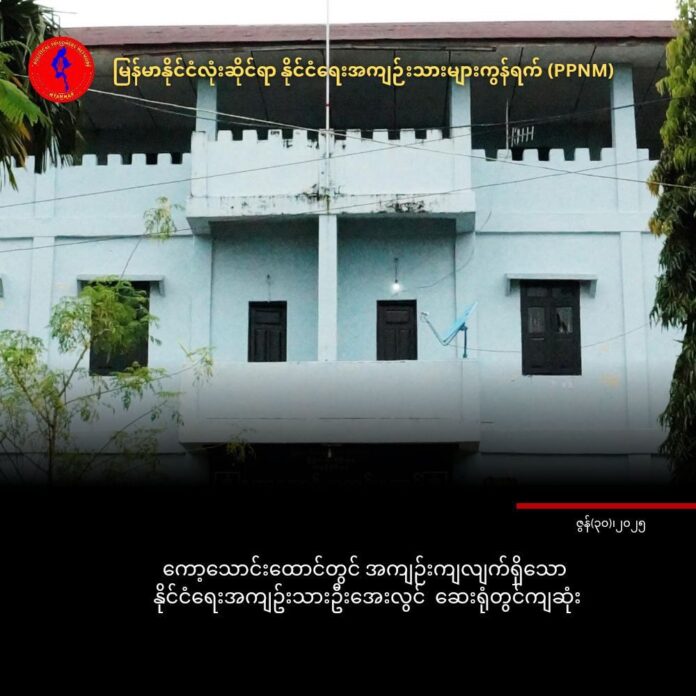Thirteen political prisoners have died within the first six months of this year due to inadequate healthcare in prisons across Myanmar, according to the Political Prisoners Network- Myanmar (PPNM).
The deaths of prisoners have been attributed to the lack of adequate medical treatment, delay in emergency care, and the unavailability of essential healthcare services in prisons across the country.
According to data from the Political Prisoners Network- Myanmar (PPNM), from January to June 2025, up to 13 political prisoners have died, including former Mandalay Region Parliament Speaker U Aung Kyaw Oo.

“Political prisoners face significant difficulties in accessing proper medical care. The nurses inside the prisons only provide basic medicines such as paracetamol and omeprazole. Even for stomach ailments, these are the only medicines given. There is a severe shortage of adequate medications. There is a lack of sufficient medical supplies, and the available ones are kept without proper sealing or protection, and some are even expired, though no one knows for sure. This is the reality inside the prisons,” said Ma Yaung Ni Lin, spokesperson for the Political Prisons Network- Myanmar (PPNM).
Despite repeated calls from the Political Prisoners Network – Myanmar (PPNM) and other human rights organisations for urgent reforms in healthcare within the military junta’s prison system, effective responses have yet to be seen.
As a result, over the past six months, due to insufficient medicines and delays in emergency medical treatment, one political prisoner died at Kawthoung Prison; five political prisoners and two detainees at Oe Bo Prison; two political prisoners at Thayarwaddy Prison; one political prisoner at Myaungmya Prison; two political prisoners at Daik-U Prison; and one political prisoner at Katha Prison.
“The treatment and conditions vary from prison to prison. In some prisons, prisoners have to buy their drinking water. The lack of medical care is a common problem across all prisons. In certain facilities, prisoners are only fed soft or low-quality rice. Recently, due to budget cuts, they have even reduced meals to just two small portions per day. These harsh conditions affect not only political prisoners but also other detainees,” said a PPNM official.
According to records from the Political Prisoners Network – Myanmar (PPNM), a total of 22 political prisoners and detainees nationwide died in 2024 due to insufficient medical care in prisons.
The Assistance Association for Political Prisoners (AAPP), the Former Political Prisoners Society (FPPS), the Political Prisoners Network – Myanmar (PPNM), and the Women’s Organisation for Political Prisoners (WOPP) send the admission letter and Nway Oo emissary Naing/Kyin Assistance Groups have jointly stated in late last year, pledging to continue their tireless efforts to seek justice for the sacrifices and releases of political prisoners who have endured torture and abuse.

